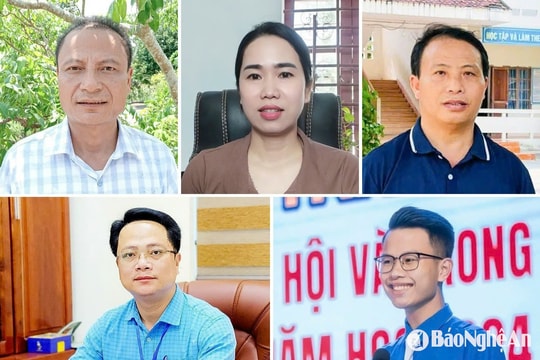Nghe An National Assembly delegates discuss legal regulations on atomic energy and innovation
On the afternoon of May 6, the National Assembly discussed in groups the following contents: the Draft Law on Science, Technology and Innovation; the Draft Law on amending and supplementing a number of articles of the Law on Product and Goods Quality; and the Draft Law on Atomic Energy (amended).
.jpg)
Nuclear power plant technology must be modern, ensuring absolute safety.
Regarding the draft Law on Atomic Energy (amended), delegate Hoang Thi Thu Hien - Permanent Vice President of the Provincial Women's Union commented: the regulations on principles of ensuring safety and security in the field of atomic energy in the current draft are only at the general level, focusing on safety and security, and are not comprehensive. She proposed to add regulations on principles covering all activities in the field of atomic energy to ensure compliance with the scope of the law.
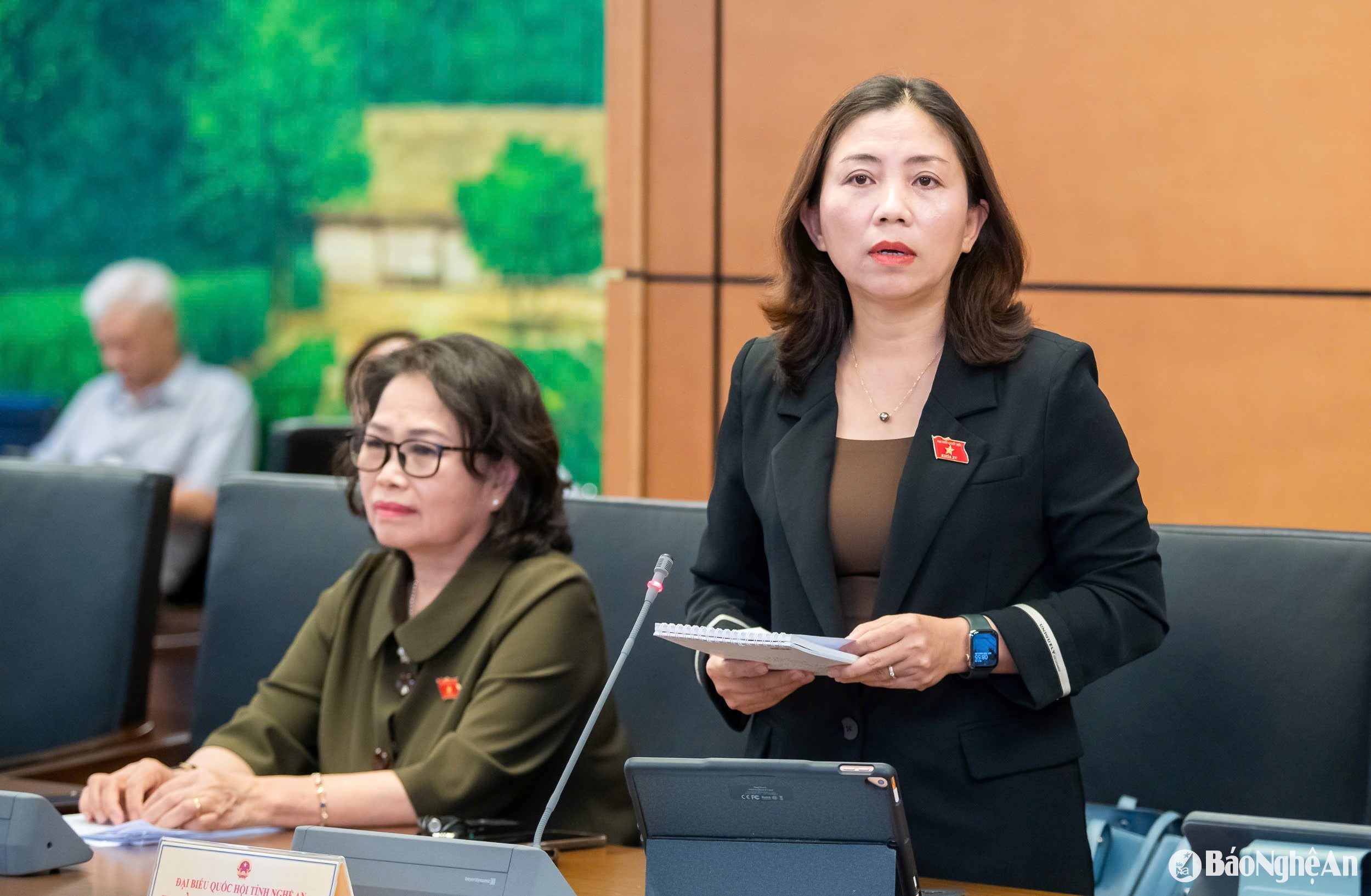
Supporting the need to restart nuclear power plant projects to ensure energy security and meet development needs, delegates suggested that the draft law should have specific regulations on modern technology standards and ensure absolute safety.
Regarding the nuclear regulatory agency, delegate Hoang Thi Thu Hien said that the draft is currently being developed in the direction of assigning the Government to regulate this agency to perform the state management function of radiation and nuclear safety, which is not really appropriate. Given the special importance of this field, she suggested that the drafting agency should supplement clear regulations on the nuclear regulatory agency, in a direction consistent with international practice, while ensuring independence and efficiency in operation.
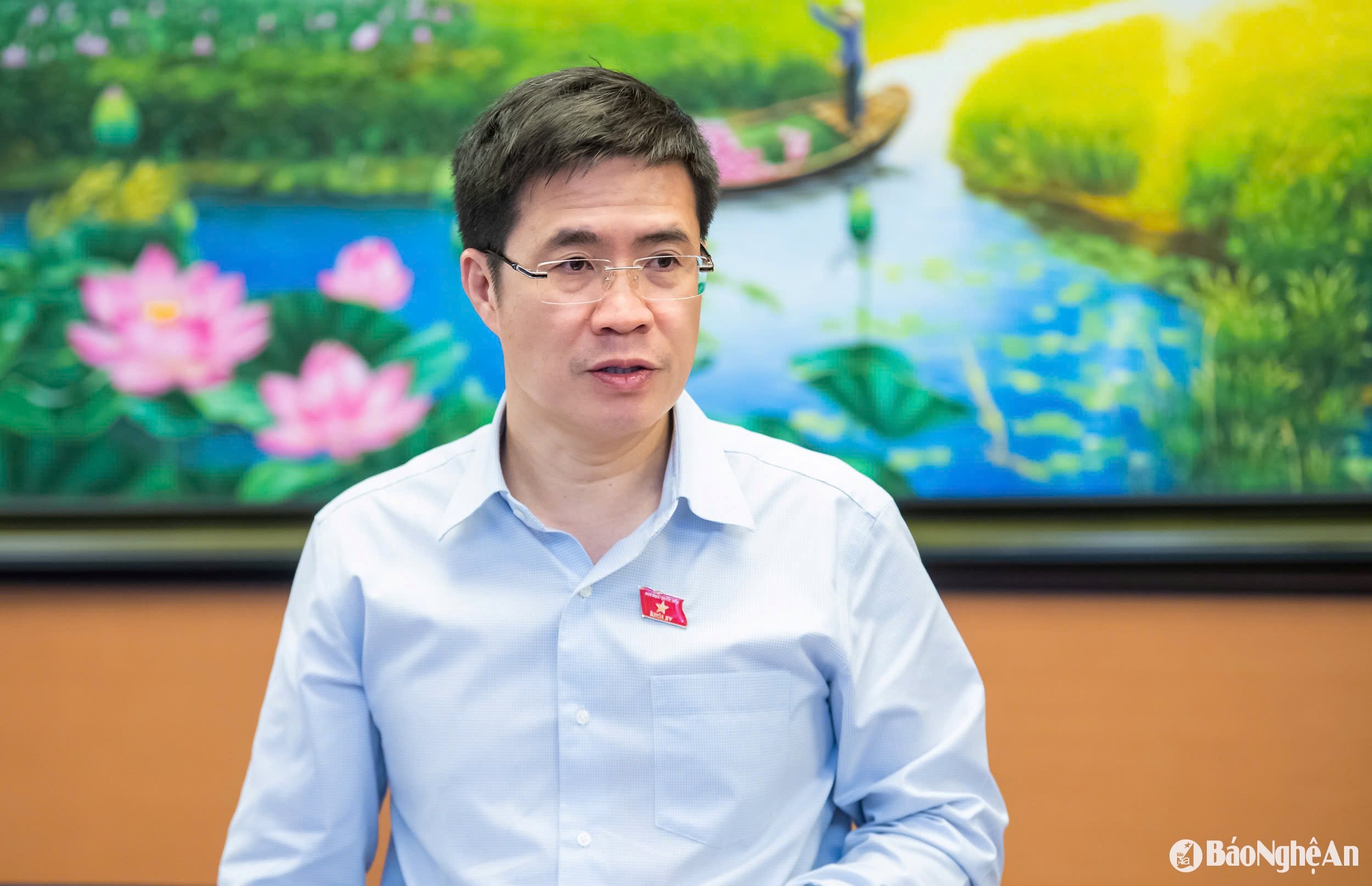
Agreeing with this view, delegate Hoang Minh Hieu - a full-time member of the National Assembly's Committee on Law and Justice, clearly analyzed the difficulties if the regulations on nuclear regulatory agencies were not clarified. He suggested that there should be specific regulations in line with the regulations of the International Atomic Energy Agency (IAEA), which became more stringent after the disaster at the Fukushima Nuclear Power Plant in Japan in 2011.
The delegates also requested the drafting agency to research and revise the content related to the socialization of activities in the field of atomic energy to be consistent with the current legal system. At the same time, there needs to be a more convincing explanation, including citing international experience in the proposed regulation to transfer the authority to decide on investment policies for nuclear power plants from the National Assembly to the Prime Minister.
In addition, the delegate of Nghe An also recommended that the regulation on priority customs procedures for nuclear-related materials should not be included in the Law on Atomic Energy (amended), but should be transferred to the Customs Law, which is also being submitted to the National Assembly for consideration and amendment at this session, to ensure consistency in the legal system.
In addition, he suggested that it is necessary to clearly define which agency will manage and how to operate the Nuclear Incident Response Support Fund, instead of just listing the fund sources and usage goals as in the current draft.
Legal mechanism for scientists to accept risks in research and testing
Regarding the Draft Law on Science, Technology and Innovation, Major General Tran Duc Thuan - a full-time member of the National Assembly's Committee on National Defense, Security and Foreign Affairs, expressed his support for the promulgation of this law.
He stressed the need for new, specific policies to encourage research, technology development and innovation, especially the need to accept risks and have appropriate protection mechanisms for those operating in this field.
.jpg)
In addition, Major General Tran Duc Thuan suggested clarifying the scope of the concept of "innovation"; at the same time, proposing specific financial investment policies, management mechanisms and separate remuneration regimes for strategic, sensitive or highly competitive scientific fields.
With the Atomic Energy Law Project, Major General Tran Duc Thuan continued to emphasize the special nature and high level of risk of this field and proposed strengthening strict management of nuclear materials and equipment as well as controlling international cooperation activities.
Delegate Thai Van Thanh - Member of the Provincial Party Executive Committee, Director of the Department of Education and Training of Nghe An highly appreciated the draft Law on Science, Technology and Innovation when it has provisions on exemption from civil and administrative liability for users and management agencies in the process of implementing scientific research and innovation contents.
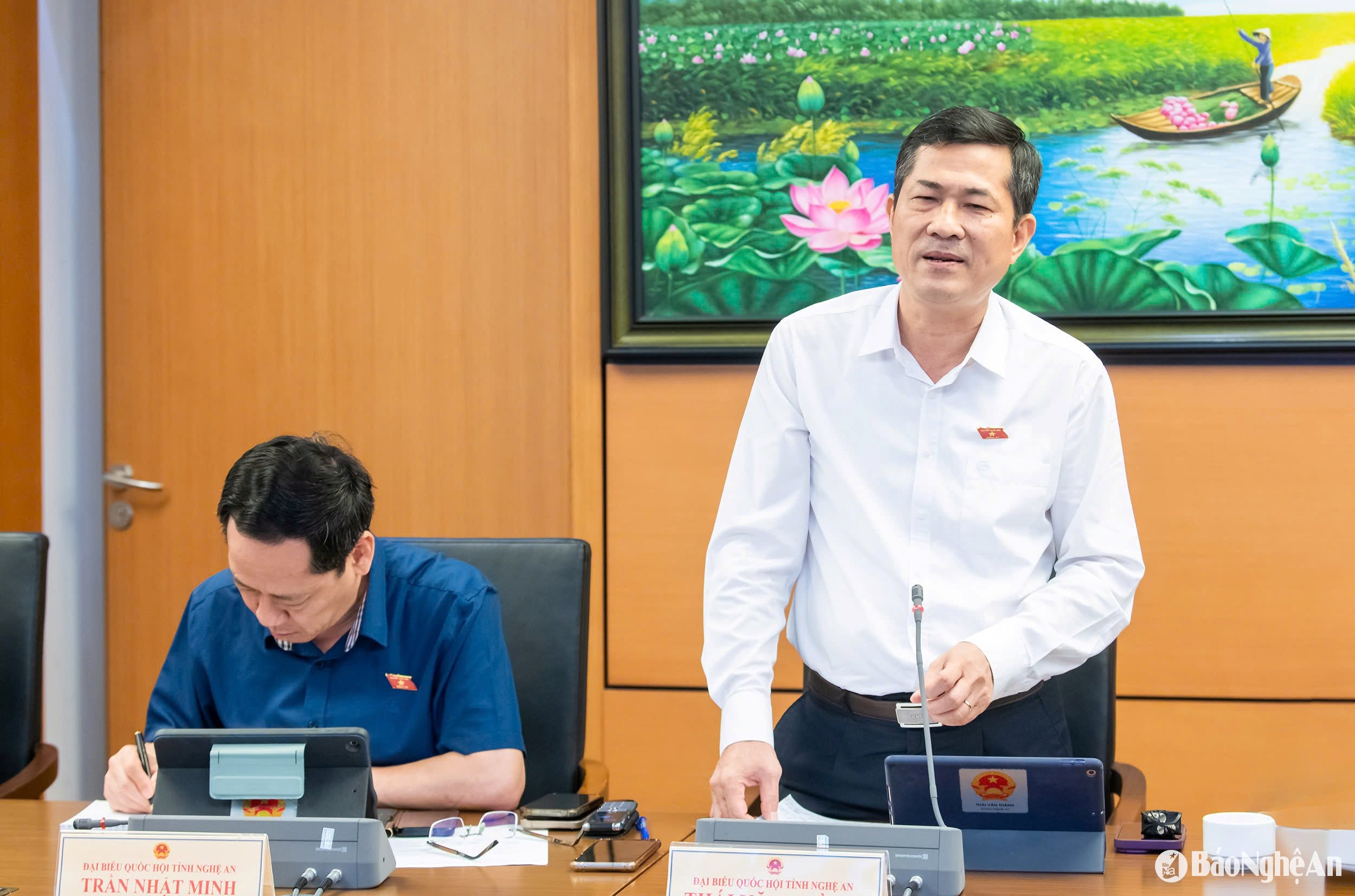
However, according to him, the draft has not yet clearly stipulated the exemption of responsibility for scientists who directly participate in research, innovation and implementation of experimental projects. He suggested that it is necessary to add more specific regulations, similar to those for users and management agencies. In particular, it is necessary to consider expanding the scope of exemption, including exemption from criminal liability in appropriate cases, to create trust and motivation for scientists to dare to think, dare to do, dare to accept risks in research and project implementation.
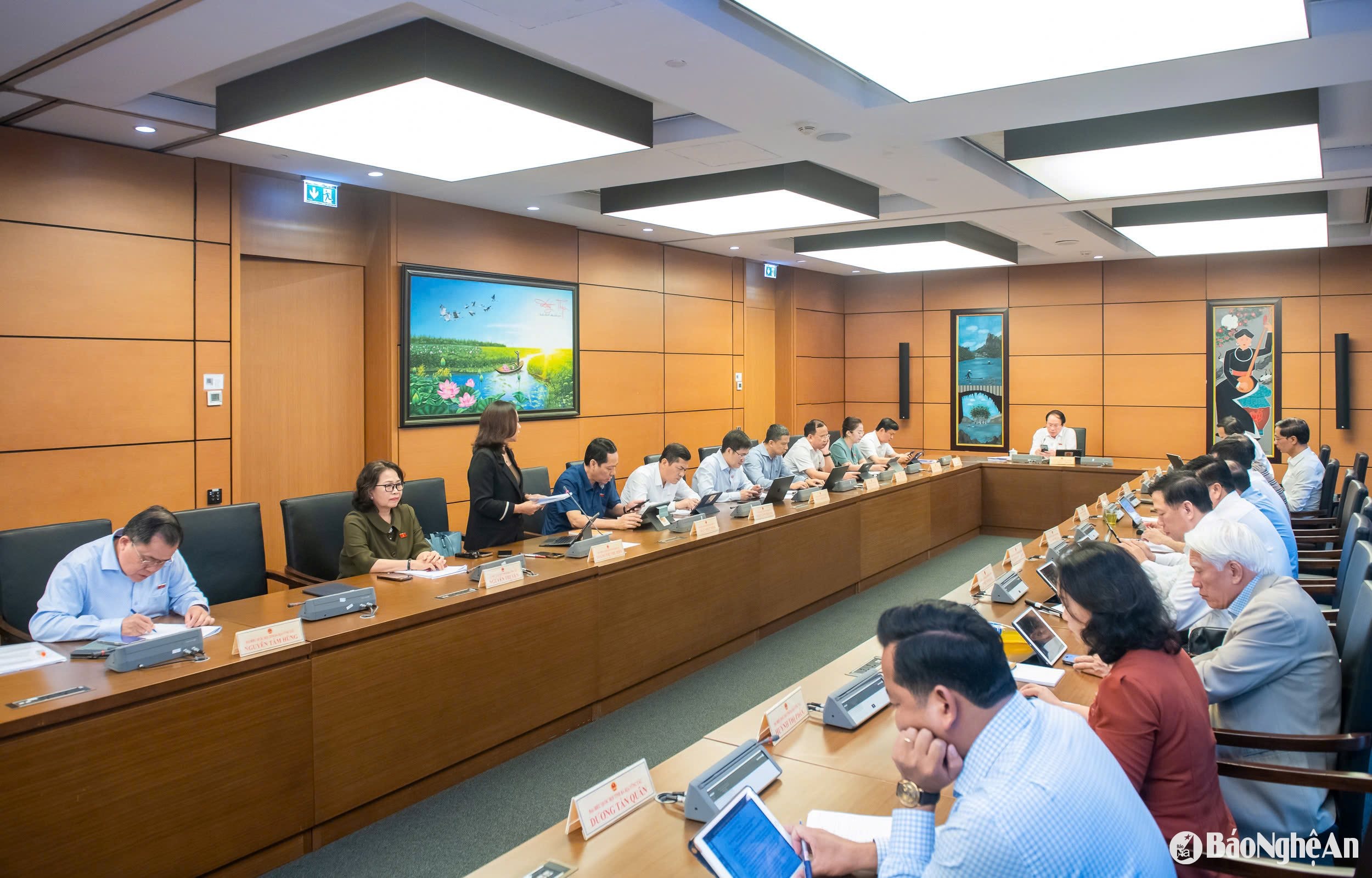
Regarding the strategy and master plan for science, technology and innovation development, delegate Thai Van Thanh proposed that the law should clearly stipulate the core contents, including: vision, viewpoints, goals, action plans, key projects, key areas and priority areas.
He also supported the concept of “talent” expressed in the draft law through 7 specific criteria. However, the delegate asked the Drafting Committee to clarify: whether an individual who wants to be recognized as a talent in the field of science, technology and innovation must meet all 7 criteria or only one of them.

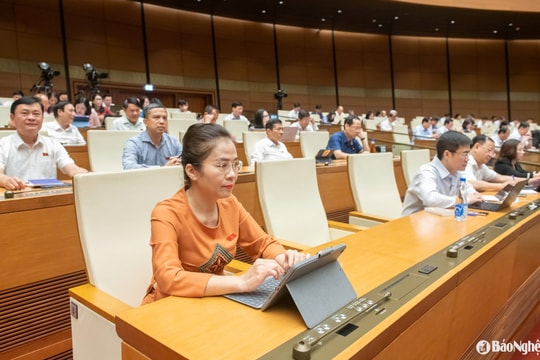
.jpg)
